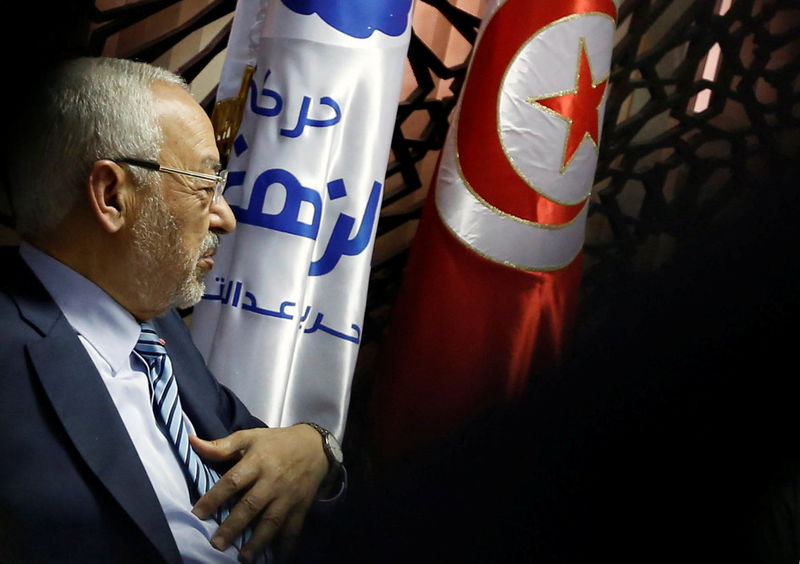By Tarek Amara and Ulf Laessing
TUNIS (Reuters) - Tunisia needs a national dialogue to end a deadlock over economic reforms in the same way it solved a political crisis in 2013 that almost tore apart the birthplace of the Arab spring, the head of the co-ruling Islamist party said.
Since an uprising that ousted autocrat Zine El-Abidine Ben Ali in 2011, Tunisia has a new constitution, free elections and a coalition government with secular and Islamist parties in a region otherwise struggling with upheaval.
But the North African country has been grappling with an economic crisis and youth unemployment of about 30 percent as turmoil has deterred investors, surviving at the mercy of foreign donors.
Rached Ghannouchi, head of the Ennahda party in power with secular forces, said Tunisia needed a dialogue on a technocratic level to tackle reforms such as trimming its bloated public sector, a key demand of the International Monetary Fund (IMF).
"Now it's the decisive time for major reforms," Ghannouchi told Reuters in an interview. "We need an economic consensus like we had a political one to make the revolution a success."
Many normal Tunisians say that while they enjoy the most liberal political system in the region, they are materially worse off than before 2011, with annual inflation hitting a record level of 7.6 percent in January.
Protests broke out in January this year across the country with young people complaining they cannot get jobs.
Seven prime ministers have failed since 2011 to cut down the public services and loss-making state firms as unions or other groups have blocked reforms.
"There is a dialogue between parties and organizations to find a consensus for economic issues but this cannot go on forever," Ghannoushi said. "There is no alternative to experts sitting down and agreeing on details of the reform solutions."
Tunisia's National Dialogue Quartet made up of unions and civic groups won in 2015 the Nobel Peace prize for mediating between secular forces and Ennahda, which had won the first elections since 2011.
Political assassinations and protests of secular Tunisians against Islamists had escalated until a consensus was reached on a constitution enshrining women's and democratic rights.
Exiled during the time of Ben Ali, Ghannouchi has been a major force in the post-revolution transformation.
The 76-year-old remains a dominant figure who critics say effectively controls the country in tandem with the secular-minded President Beji Caid Essebsi, 91, dubbed the "two sheikhs" in reference to their age.

Ghannouchi said his party preferred stability to push through reforms instead of changing the prime minister again. When asked about the performance of the government he said: "Not worse than the previous ones."